19 Types of Vases and How to Choose One
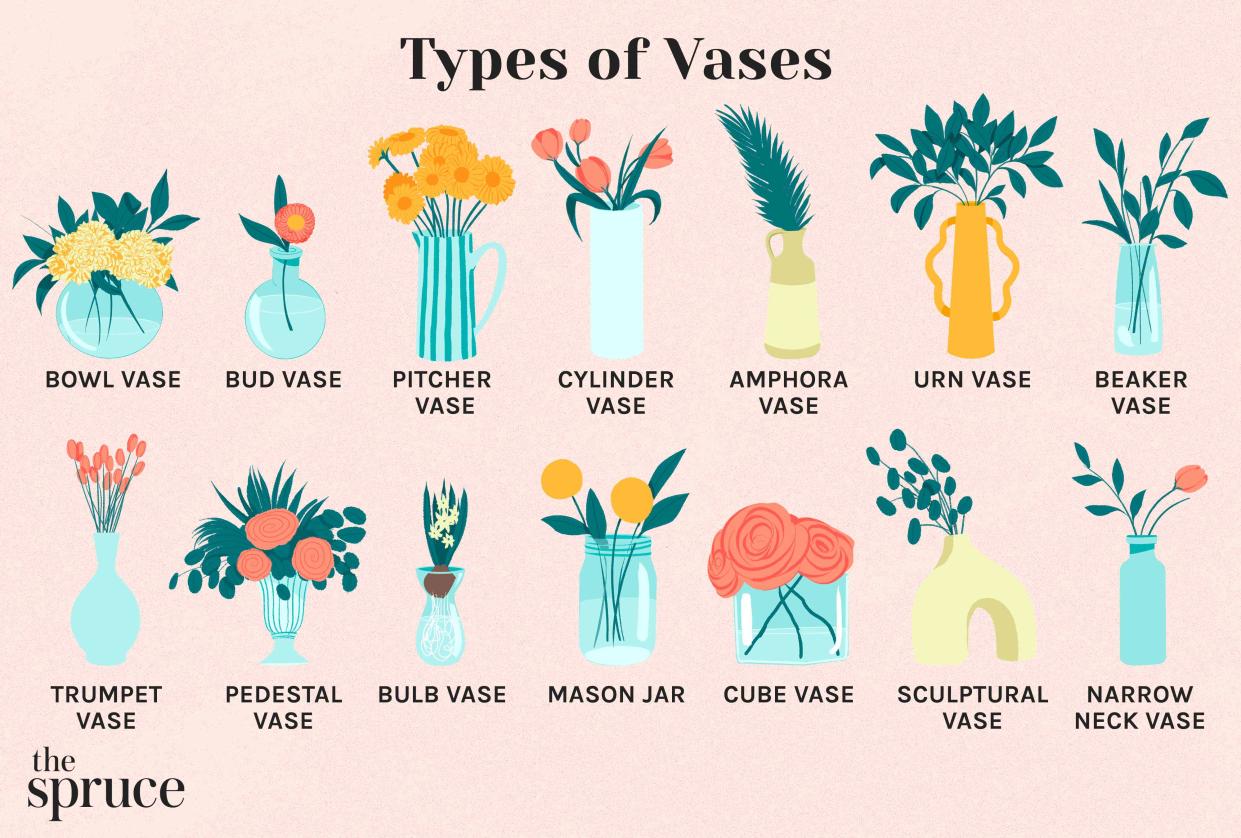
The Spruce / Tara Anand
There's nothing like a bouquet of fresh flowers to brighten a room and cheer you up. When it comes to displaying your floral arrangement at home, some vases are better suited for one type of flower over another. Glass vases hold water for fresh flowers but vessels made of other materials, such as metal, wood, or unglazed ceramics, may be best suited for faux blooms as water may eventually leak through. Besides the vase material, occasion, and bouquet size, the flowers' style plays a role, too. Keep reading to learn about 19 types of vases and how to choose the right one to enjoy your blooms to their fullest.
Mason Jar
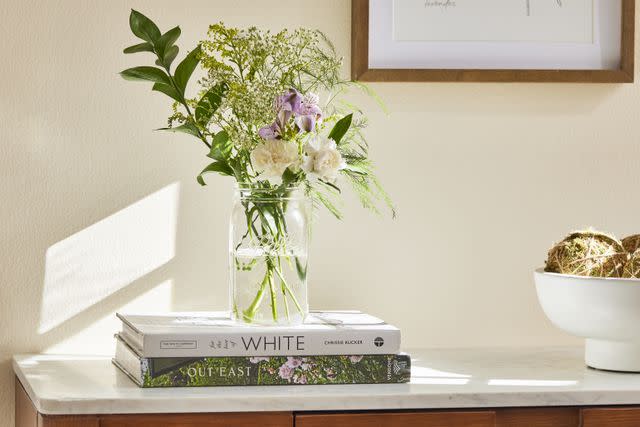
The Spruce / Jason Donnelly
Best for: A small, casual flower arrangement
A mason jar is one of the most versatile little containers you'll ever find around your house—besides its obvious function as a canning jar or a drinking glass, it makes for a great flower vase. It's the perfect vessel for a small, casual arrangement to add a touch of rustic charm to your home.
Bud Vase
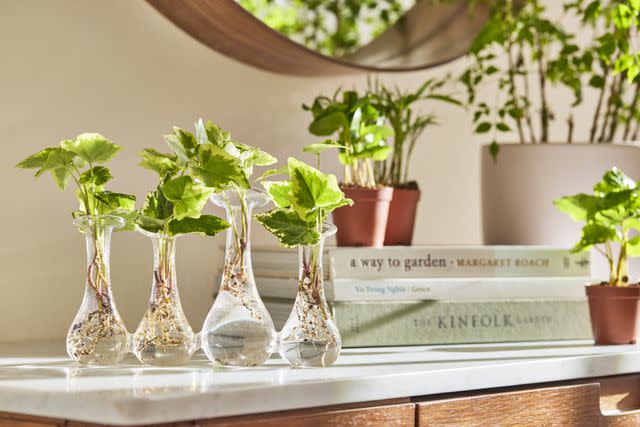
The Spruce / Jason Donnelly
Best for: A single flower stem or cuttings
One of the smallest types of vases, a bud vase is designed to hold a single flower stem, such as a bud stem, hence its name. It's often made from glass, but you'll also see ceramic versions. It doesn't take up too much space, which makes it a great choice for a nightstand, desk, or bookshelf.
Cylinder Vase
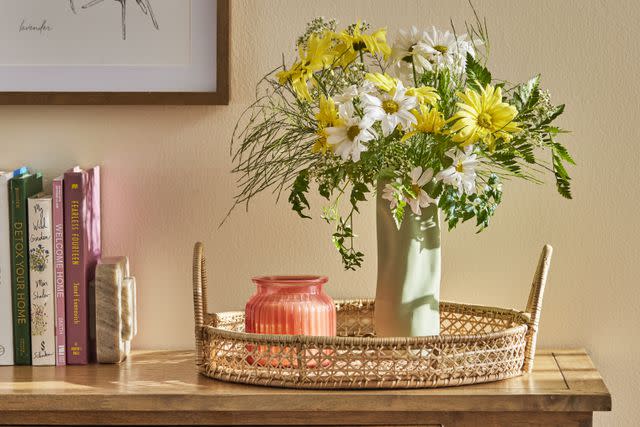
The Spruce / Jason Donnelly
Best for: A modern flower arrangement
A cylinder vase is named after its shape and is a modern, versatile flower container well-suited for a variety of arrangements. It varies in height and diameter and the sleek shape makes it a good choice for a centerpiece on your coffee or dining table.
Ceramic Vase
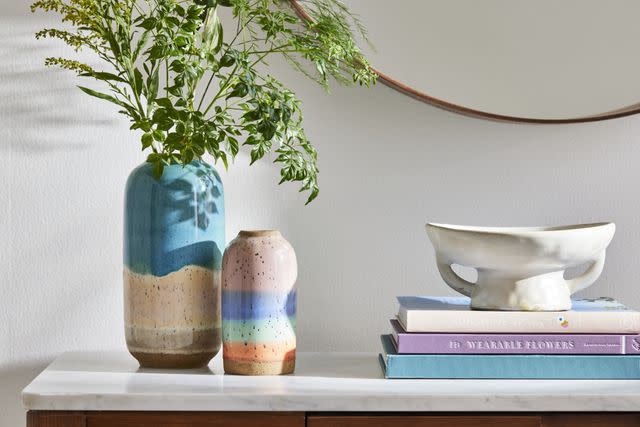
The Spruce / Jason Donnelly
Best for: Any flowers
If you're looking for a floral vessel that's made from something other than glass, a ceramic vase is a nice way to bring in a color that complements both the room and the flowers. When placing flowers inside one, however, make sure that the interior of the vase is glazed, because if it's not, the vase will not be waterproof.
Cube Vase
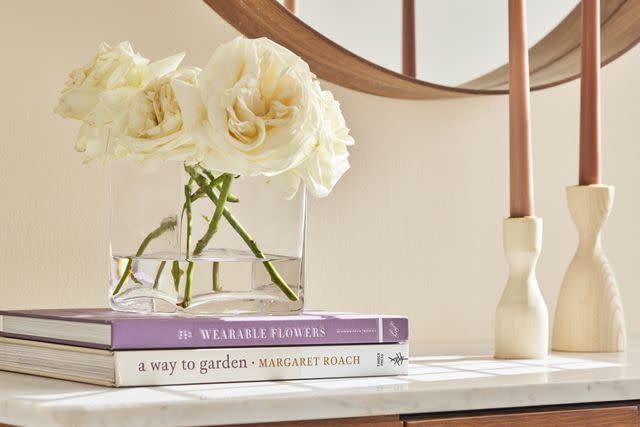
The Spruce / Jason Donnelly
Best for: A low-sitting, contemporary-style arrangement
For a contemporary arrangement, use a cube-shaped vase that'll give your flowers a modern edge. The wide mouth makes it suitable for a low arrangement with larger flowers such as peonies or hydrangeas.
Pitcher Vase
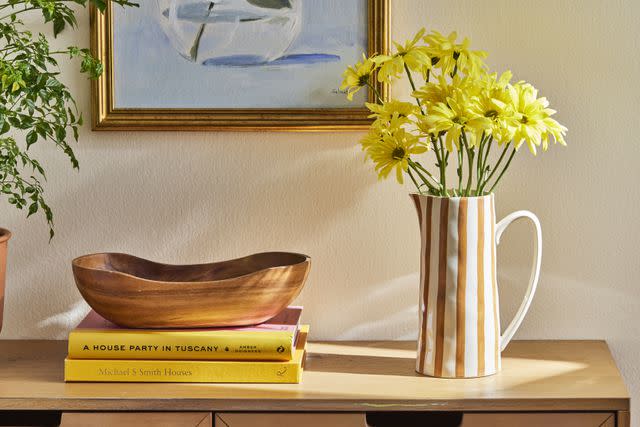
The Spruce / Jason Donnelly
Best for: An unfussy bouquet for the kitchen
For a casual, farmhouse-style bouquet from the market or wildflowers from your garden, you can't go wrong with a pitcher. Whether it's ceramic or glass, arrange the flowers organically and place them on your kitchen table or island for a homey, inviting feel.
Pedestal Vase
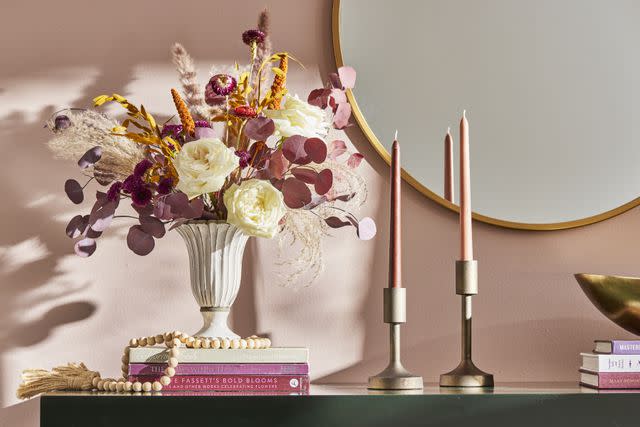
The Spruce / Jason Donnelly
Best for: A dramatic floral arrangement for an event or holiday gathering
Create a dramatic event or holiday-worthy floral arrangement by using a pedestal vase as a vessel. The vase is elevated on top of a pedestal that forms its base, whether round or square—it's perfect for a formal centerpiece.
Sculptural vase
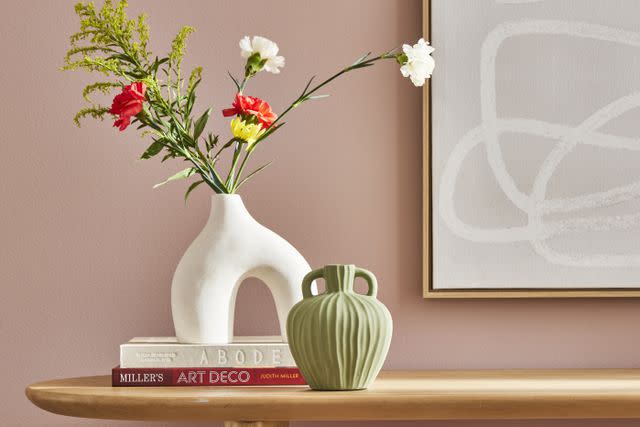
The Spruce / Jason Donnelly
Best for: A decorative accent that can be used without flowers
Add some personality to your room with a sculptural vase that doubles as a decorative accent, whether it's filled with flowers or it's empty. If you're looking for a unique flower holder that'll make a statement, this is an alternative to a classic glass vase.
Bouquet Vase
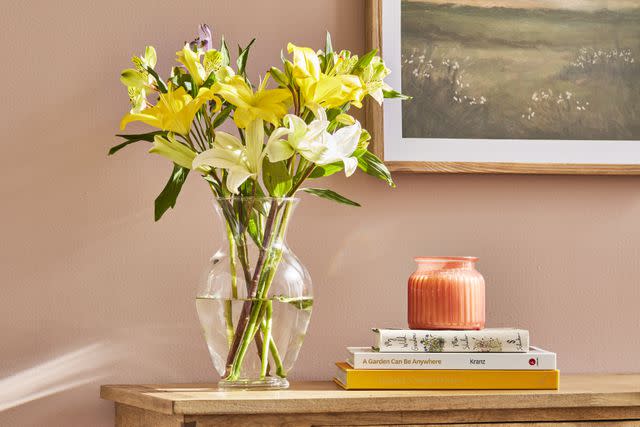
The Spruce / Jason Donnelly
Best for: Any flower bouquet
The most classic, typical, and frequently used, this type of vase is large enough to hold an average-sized bouquet. It often features an hourglass shape which means that it's wider at the bottom than it is at the top but has a mouth wide enough to hold lots of flower stems.
Glass Bowl Vase
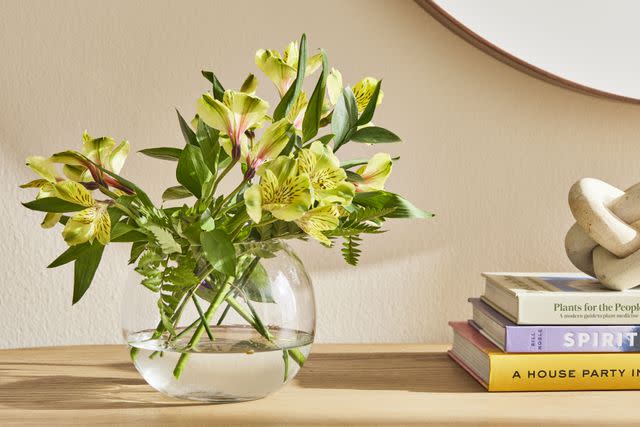
The Spruce / Jason Donnelly
Best for: A simple and elegant low-sitting arrangement
Put together a luscious flower arrangement in a glass bowl vase that sits low to make it the right choice for a centerpiece on a dining or coffee table. Go with a rose-only arrangement for a modern and elegant centerpiece, or create a casual look with greenery and hydrangeas.
Antique Vase
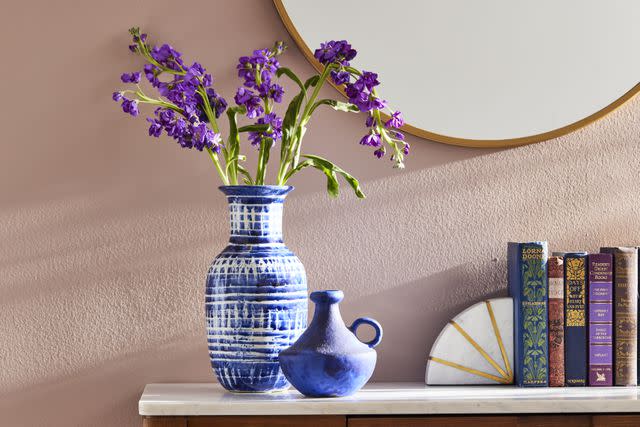
The Spruce / Jason Donnelly
Best for: A decorative accent or to hold occasional flowers
An antique vase is a lovely addition to your decor whether it's filled with flowers or sits empty adorning a console in the living room. Make sure there are no cracks and that its interior is fully glazed to prevent leaks.
Bulb Vase
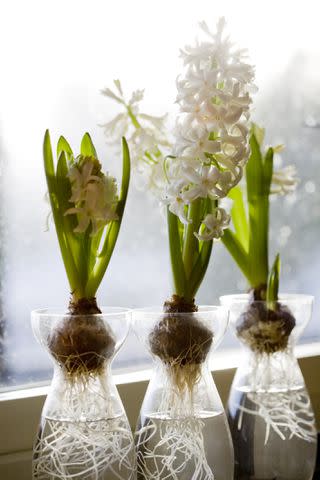
Ahlin, Ewa / Getty Images
Best for: Individual flower bulbs
Bulb vases are made of glass so the flower roots are visible and you can see when it's time to add water. They only hold one bulb and have an hourglass shape that holds it securely in place.
Urn Vase
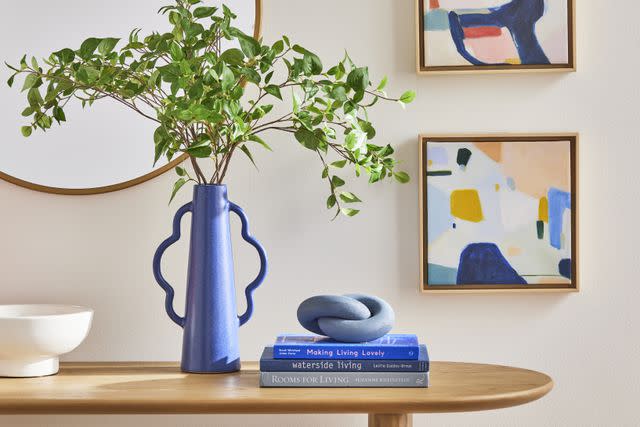
The Spruce / Jason Donnelly
Best for: Dried or faux flowers, stems, or branches
The word urn actually refers to a vase that often has a pedestal and one or two handles that serve both a decorative and practical purpose. One way to use an unglazed ceramic urn is to display dried or faux flowers and greenery that don't require water. Urn vases are shorter and have more rounded bellies than amphora vases.
Narrow Neck Vase
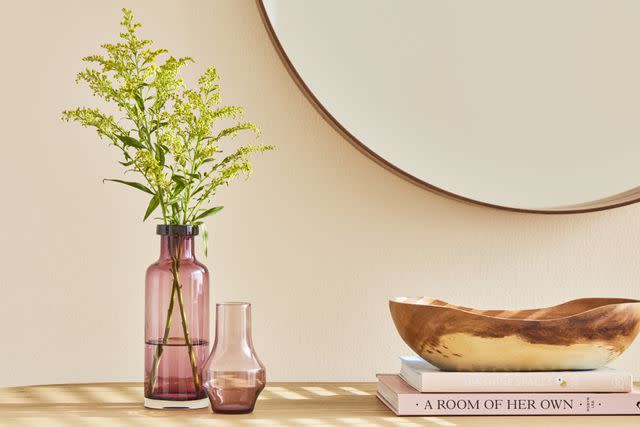
The Spruce / Jason Donnelly
Best for: A small number of stems
If you only have a couple of flower stems, a narrow neck vase is the way to go, as it'll prop them upright and make the vase look full even with just two or three stems.
Fluted Vase
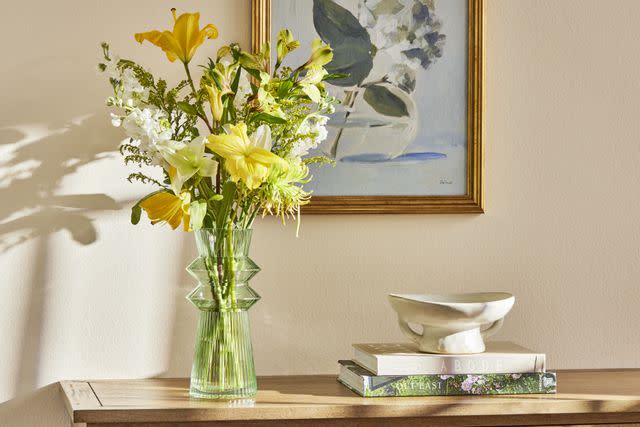
The Spruce / Jason Donnelly
Best for: Any flowers
A fluted design on a vase refers to the grooved texture that's created through a series of evenly spaced vertical ridges on its surface. It adds dimension and a nice decorative detail to a vase, elongating its shape.
Rustic Vase
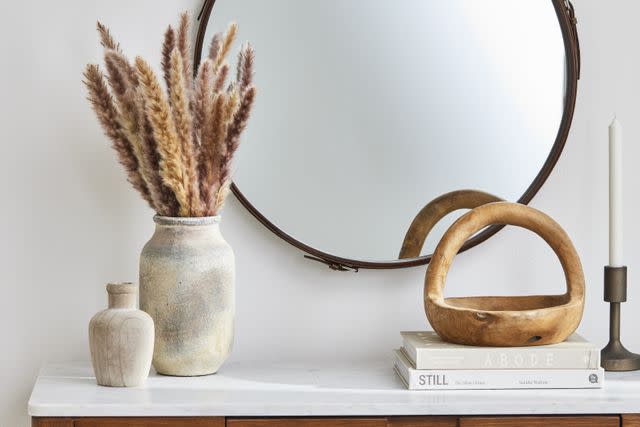
The Spruce / Jason Donnelly
Best for: Faux or dried flowers and stems
If you're looking for a rustic look that goes beyond the glass Mason jar, you can find vases made of wood, galvanized metals, cement, stone, and ceramics that have distressed finishes to match farmhouse or cottage decor. Always check to see if your rustic vase can hold water for fresh flowers since most will leak. You may need to use vessels made of these materials for faux or dried arrangements.
Beaker Vase
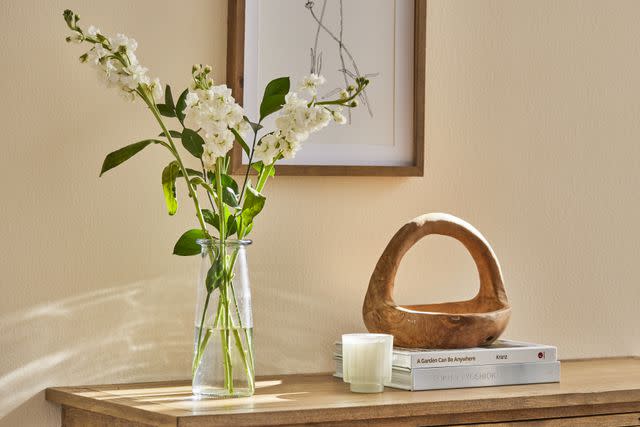
The Spruce / Jason Donnelly
Best for: Single stems, modern groupings
This typically slim-style vase has a narrow neck and belly and is more suitable for single buds though there are larger beakers that fit multiple stems. Typically made from clear glass, a modern-style beaker looks good as a single unit or in groups of two or more vases for a pretty and versatile arrangement. Some beaker vases can be attached to the wall while styles are set in metal holders for tabletop use.
Amphora Vase
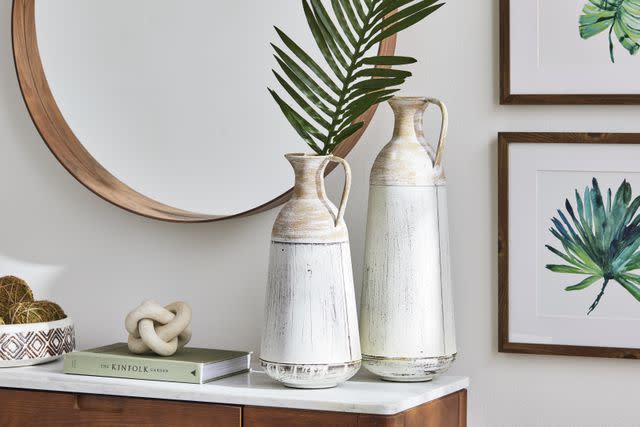
The Spruce / Jason Donnelly
Best for: Long-stems and classic arrangements
An amphora vase, also called a neck-handled vase, is a two-handled type of jar that is used for storage or as a vase. It was used in antiquity as storage or for transport of oil, wine, and other foods. The shape is taller and thinner than an urn vase. Amphora vases are typically made from ceramics or metal.
Trumpet Vase
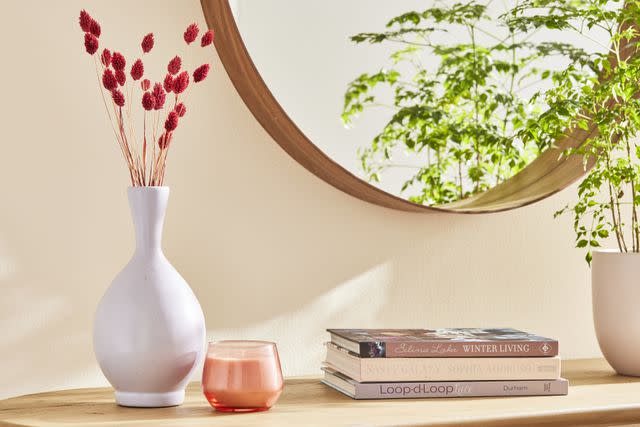
The Spruce / Jason Donnelly
Best for: Single stem or small group of stems
Trumpet vases are commonly found as a wedding or special occasion table centerpieces for their dramatic, tall, and streamlined shapes. Usually made of glass, the trumpet vase looks like an oversized champagne flute with a wide opening, which is sometimes flared, and tapered to a narrow bottom.
Choosing the Right Vase
First, choose the flowers—are they a formal arrangement for a holiday party or a "treat yourself" bouquet that'll sit in your kitchen? Consider the size of the individual blooms and the entire bouquet to determine the size of the vase. Don't forget to keep in mind where the vase will sit, too—you don't want an extra tall flower arrangement to block a dinner conversation but you also want a vase large enough if you're going to fill a corner of a hallway or room.
Read the original article on The Spruce.

